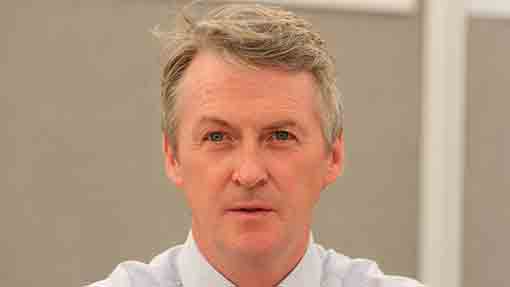Labour promises ‘long-term’ farming plan if elected
 Huw Irranca-Davies ©Rex
Huw Irranca-Davies ©Rex The Labour Party has pledged a long-term strategy to protect farming standards for British farmers if it wins next year’s general election.
During an NFU fringe debate at the Labour Party Conference in Manchester on Monday evening (22 September), party leaders outlined promises for agriculture if in power.
Shadow farm minister Huw Irranca-Davies set out Labour’s objectives for food and farming by telling an audience of about 100 delegates that “we needed to think long term”.
See also: Farmers slam Labour’s business rate proposal
Mr Irranca-Davies said a Labour government would rethink its national food strategy document, Food 2030, which has been gathering dust.
He guaranteed a long-term strategy to protect farming standards simplify EU funding, increase productivity, while delivering sustainability and environmental objectives.
Competition for land and water, declining productivity, and pressures on the environment all had to be addressed to feed a growing population and satisfy the demand for safe, nutritious and affordable food.
Mr Irranca-Davies said now was a “golden opportunity” for farming in England. However, this would involve “rethinking the way we do agriculture”.
Increasing productivity and innovation had to go hand-in-hand with protecting the environment, he added.
And the narrative had to be shifted from cheap to good food that was “free from exploitation of animals and free from exploitation of people”.
High welfare standards should underpin an active export effort, said Mr Irranca-Davies.
Earlier this week, Labour pledged to hike the national minimum wage to at least £8/hour by 2020. Mr Irranca-Davies said food and farming sectors where low paid, agency and migrant workers dominated production lines and fields had to be addressed “as a priority”.
He said he regretted the abolition of the Agriculture Wages Board and was in discussions with colleagues about what might arise in its place to guarantee pay and other conditions.
Labour would boost “local food on local grocery aisles” and would work with others to introduce a “change in food culture” so consumers knew where their food came from and valued it.
Superfast broadband would be delivered to rural communities, while Labour remained opposed to the coalition government’s badger culls.
Mr Irranca-Davies described the latest CAP reform deal for the UK as “disappointing” and asked: “What happened to simplification? What happened to more competitive European farming?”
He said the UK government needed to start working at the national and EU level towards a simplified CAP. He suggested Labour would use the 2017 presidency to set the CAP agenda.
Meanwhile, in a separate fringe meeting, farmers and animal welfare activists clashed over the ongoing pilot badger culls in the South West.
Cheshire dairy farmer Phil Latham showed the audience the “devastating” impact TB has had on his farm with an emotional video of his TB-infected dairy cow’s last day before it was culled. He insisted that culling had to be part of the solution to tackle TB.
Cheshire-based livestock vet Den Leonard suggested the activity of protesters in the cull zones were contributing to the spread of TB.
Dominic Dyer, chief executive of the Badger Trust and policy adviser for Care for the Wild, accused the government of being pushed into a “political” cull by the NFU, Country Land and Business Association and the Countryside Alliance.
While Tim Coulson, a former member of the independent expert panel (IEP) said the effectiveness of the cull had “failed by a long way” and continuing with the policy was a “huge waste of money” that would not deliver on the government aims.
Read more news stories like this
